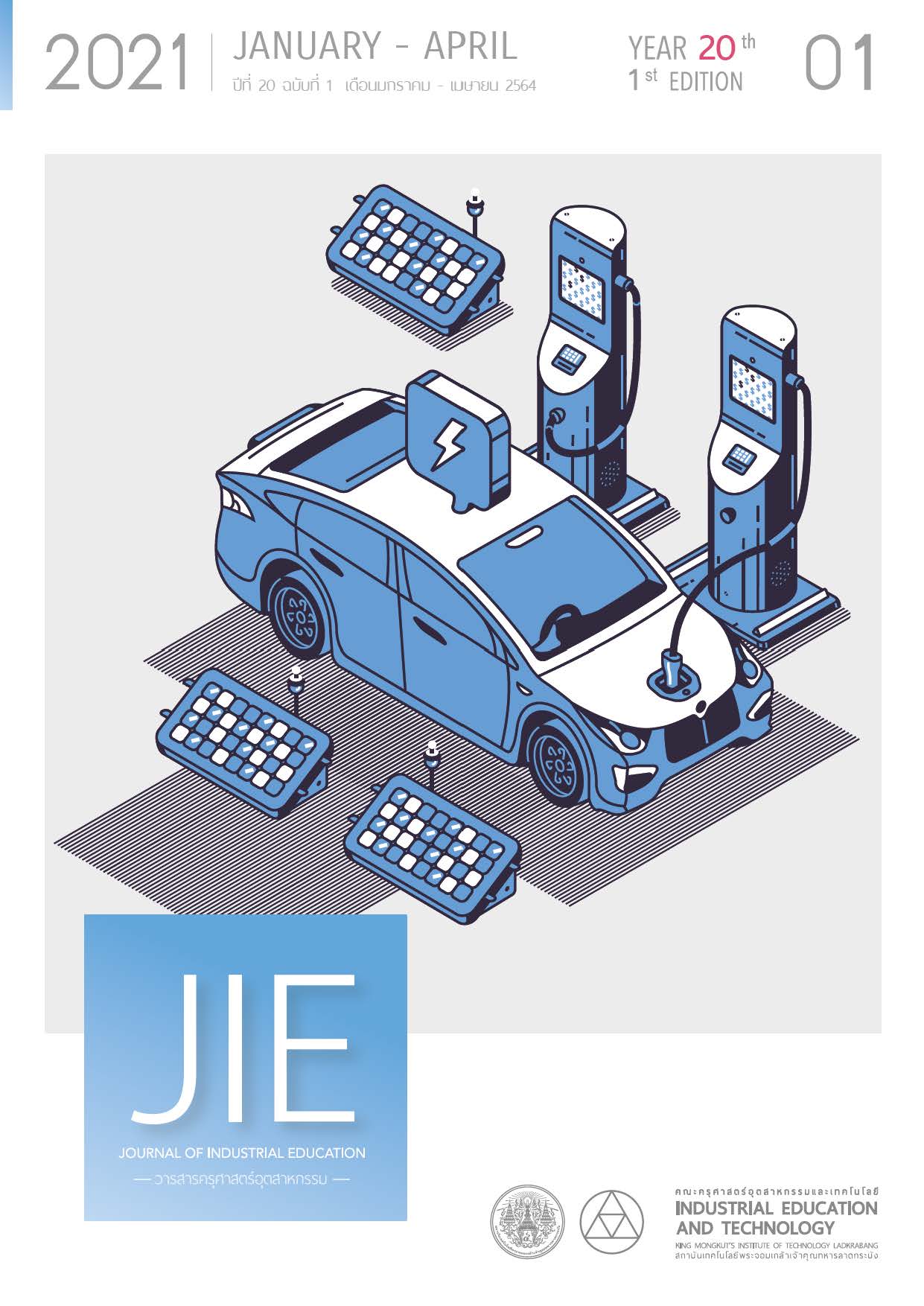CREATIVE EDUCATIONAL INNOVATIONS BASED ON EXPERIENTIAL LEARNING TO ENHANCE EDUCATION OF DIGITAL LEARNERS
Keywords:
Creative educational innovation, Experiential learning, Digital education, Digital learners, Skills in the digital ageAbstract
New teaching innovations of university instructors in the Age 4.0 are considered very important. Modern teachers should pay cautious attention to and adapt them in today’s practice so that they can integrate existing knowledge in order to produce creative educational innovations for use in promoting digital education in Thailand. In addition to the search for knowledge, analytical thinking, experiences, and expertise, there must be instructional management that is suitable for the recent era, along with the learning patterns that are well selected in accordance with the behavior of today's learners, who are regarded as digital learners. The instructors need to encourage the learners to seek knowledge by themselves, initiate challenging self-learning, create new knowledge, extend existing knowledge, think and make use of the knowledge according to the different situations and environments. Experiential learning, accordingly, is considered one of the learning styles that can encourage the learners to produce creative educational innovations by means of taking actions. By this way, the learners shall have challenges and meet with real experiences, which will enable them to extend the existing knowledge, complying with educational development under the framework of Thailand 4.0 in the 21st Century. Above all, this will also promote the learners to have essential skills in the digital age, namely, (1) Critical thinking skill, (2) Problem solving skill, (3) Creativity and innovation skill, (4) Collaboration skill, and (5) Communication information and media literacy skill.
References
Office of the Education Council. (2016). National Education Plan Framework (B.E. 2560-2574). Bangkok: Office of the Education Council Ministry of Education. 2-6. (in Thai)
Boonphak, K. (2020). Learning Management Era New Normal. Journal of Industrial Education. 19(2), A1-A6. (in Thai)
Sukkamart, A., Jedaman, P., Pimdee, P., Buaraphan, K., & Yuenyung C. (2017). “The educational development in the 21st century under the Thailand 4.0 framework.” Journal of Industrial Education. 16(2), 199-206. (in Thai)
Chatwattana, P., & Piriyasurawong, P. (2017). “Education 4.0 for Student in the 21st Century.” Technical Education Journal King Mongkut’s University of Technology North Bangkok. 8(1), 289-297. (in Thai)
Chatwattana, P. (2018). “The Concept of Creative Innovation Skills for Enhancement of Thailand 4.0.” Journal of Industrial Education. 17(3), 222-229. (in Thai)
Lewis, L. H., & Williams, C. J. (1994). “Experiential Learning: Past and Present.” New Directions for Adult and Continuing Education. n.d.(62), 5-16.
Aujirapongpan, S., Vadhanas, P., Chandrachai, A., & Cooparat, P. (2010). “Innovation: meaning category and importance to entrepreneurship.” Journal of Business Administration. 33(128), 49-65. (in Thai)
The Partnership for 21st Century Skills. (2017). Framework for 21st Century Learning. [e-book]. Available: http://static.battelleforkids.org/documents/p21/P21_Framework_Brief.pdf Retrieved January 28, 2021.
Wannapiroon, P., & Nilsook, P. (2013). “Educational innovation for enhancing student in the 21st century to the ASEAN economic community in 2015.” CRU Graduate School Journal. 8(2), 21-34. (in Thai)
Poungsuk, P. (2019). “The Agricultural Learning Center and Transition to the Digital Society.” Journal of Industrial Education. 17(3), 1-7. (in Thai)
Wikipedia. (2021). Experiential learning. [online]. Available: https://en.wikipedia.org/wiki/Experiential_learning Retrieved January 28, 2021.
Arayathanitkul, B. (2016). “Development of an Instructional Model based on Character Education and Experiential Learning Approaches for enhancing Cultural Competences in Nursing of Nursing Students.” Doctoral thesis, Chulalongkorn University, 86-87. (in Thai)
Thanachawengsakul, N., & Thanyavinichakul, A. (2020). “Education Transformation into the Role of Higher Education for Local Development.” Journal of Industrial Education. 19(3), 131-142. (in Thai)
Lee, S. K., & Benza, R. (2015). “Teaching Innovation Skills: Application of Design Thinking in a Graduate Marketing Course.” Business Education Innovation Journal. 7(1), 43-50.
Downloads
Published
How to Cite
Issue
Section
License
"The opinions and contents including the words in papers are responsibility by the authors."
"ข้อคิดเห็น เนื้อหา รวมทั้งการใช้ภาษาในบทความถือเป็นความรับผิดชอบของผู้เขียน"



